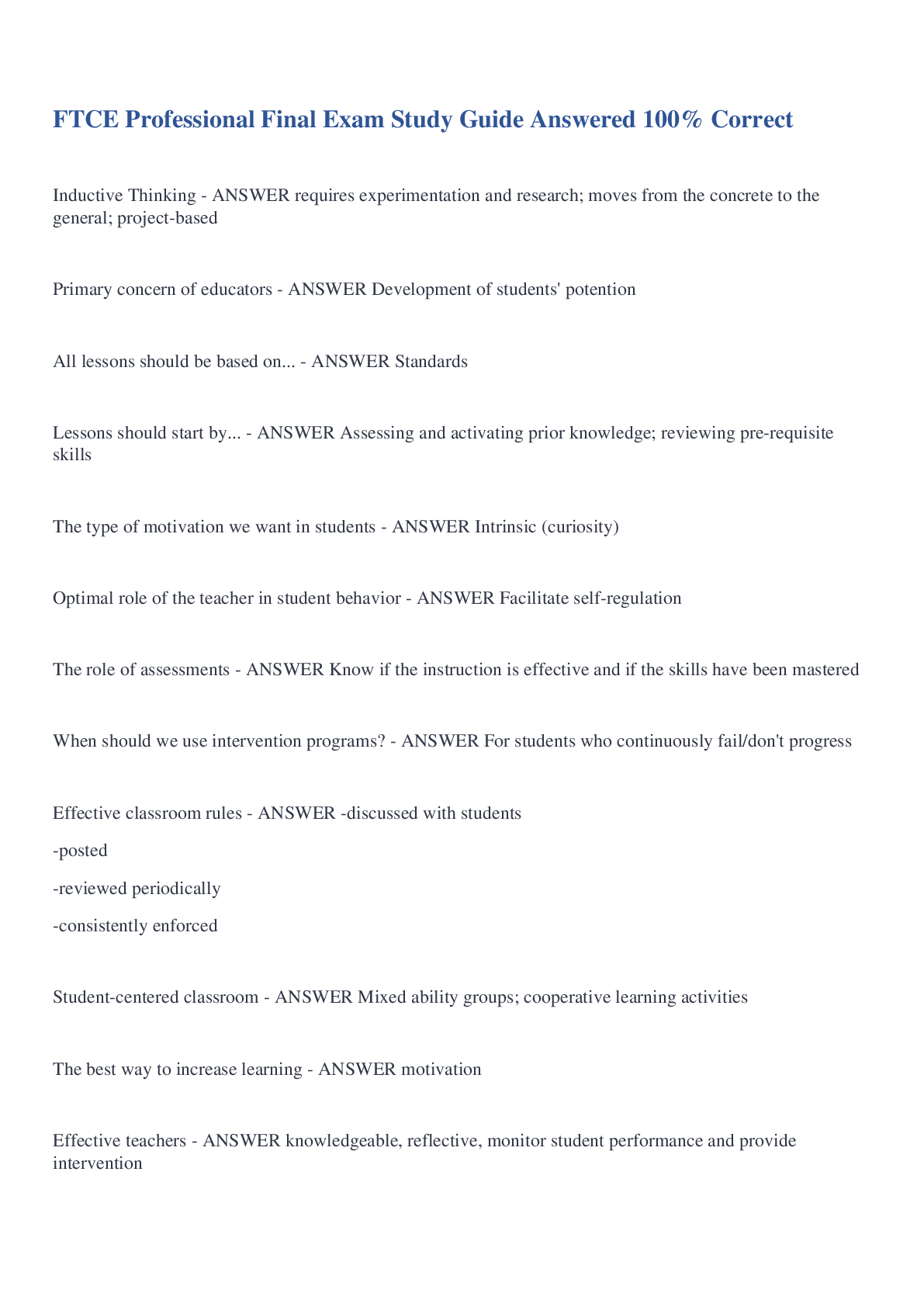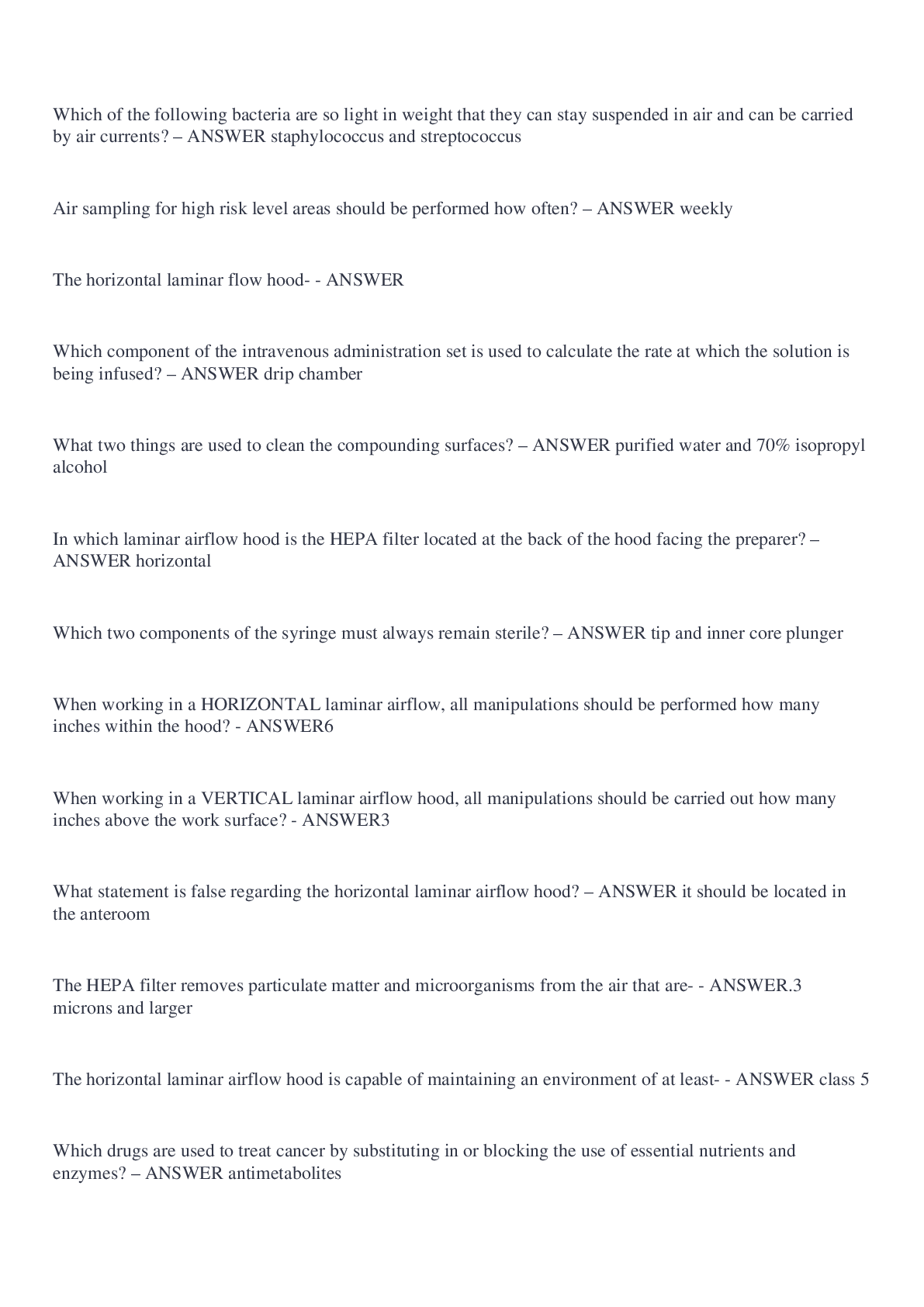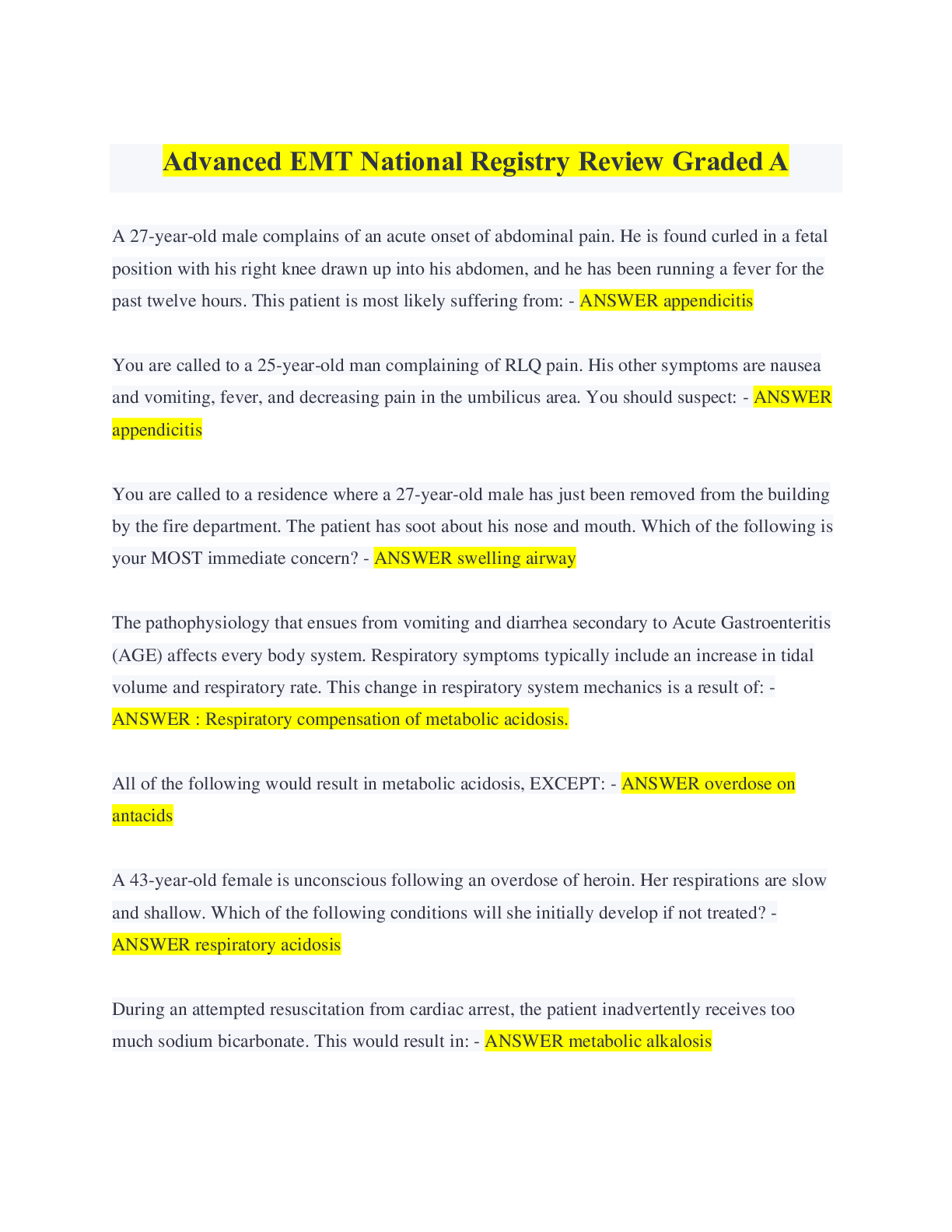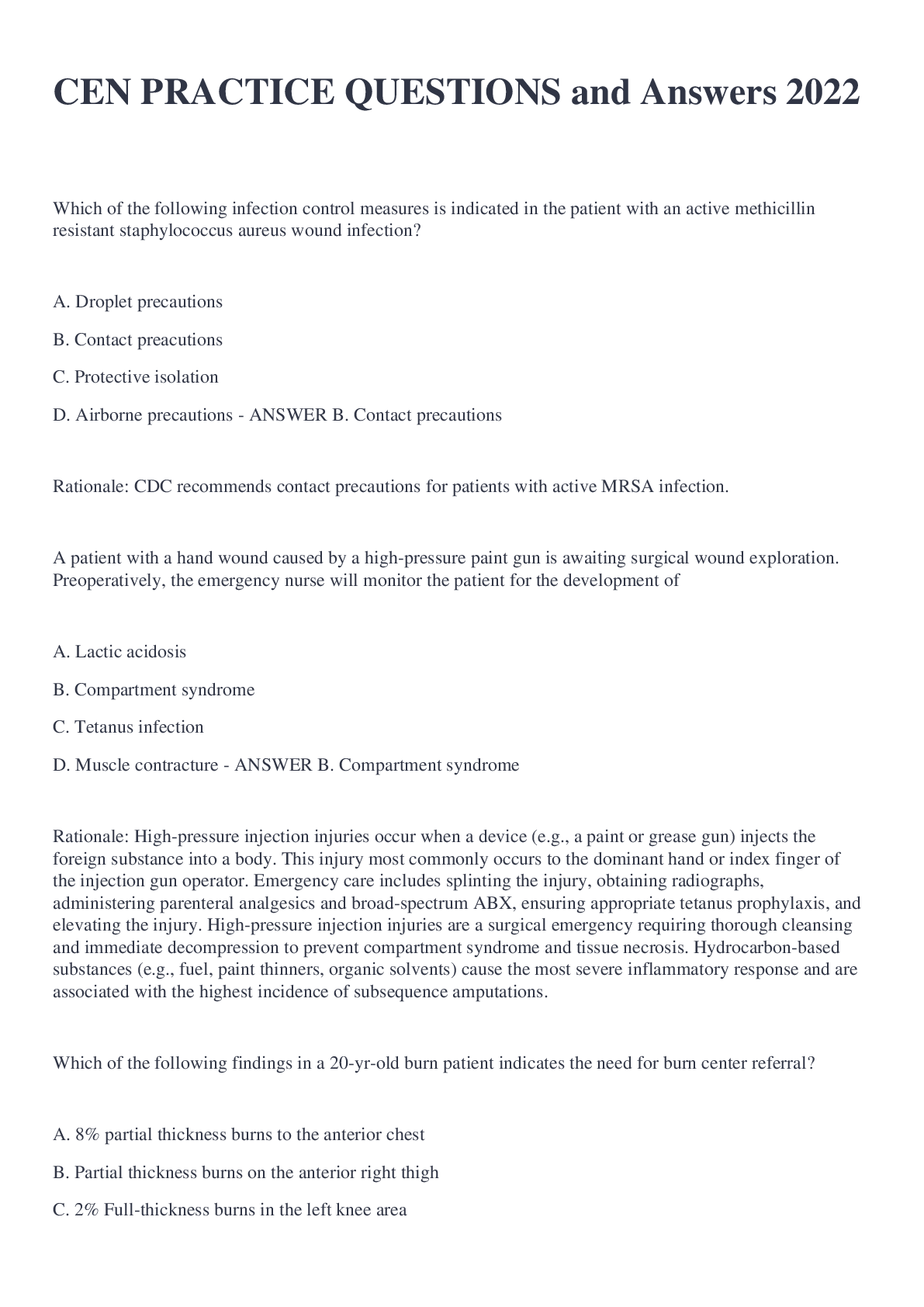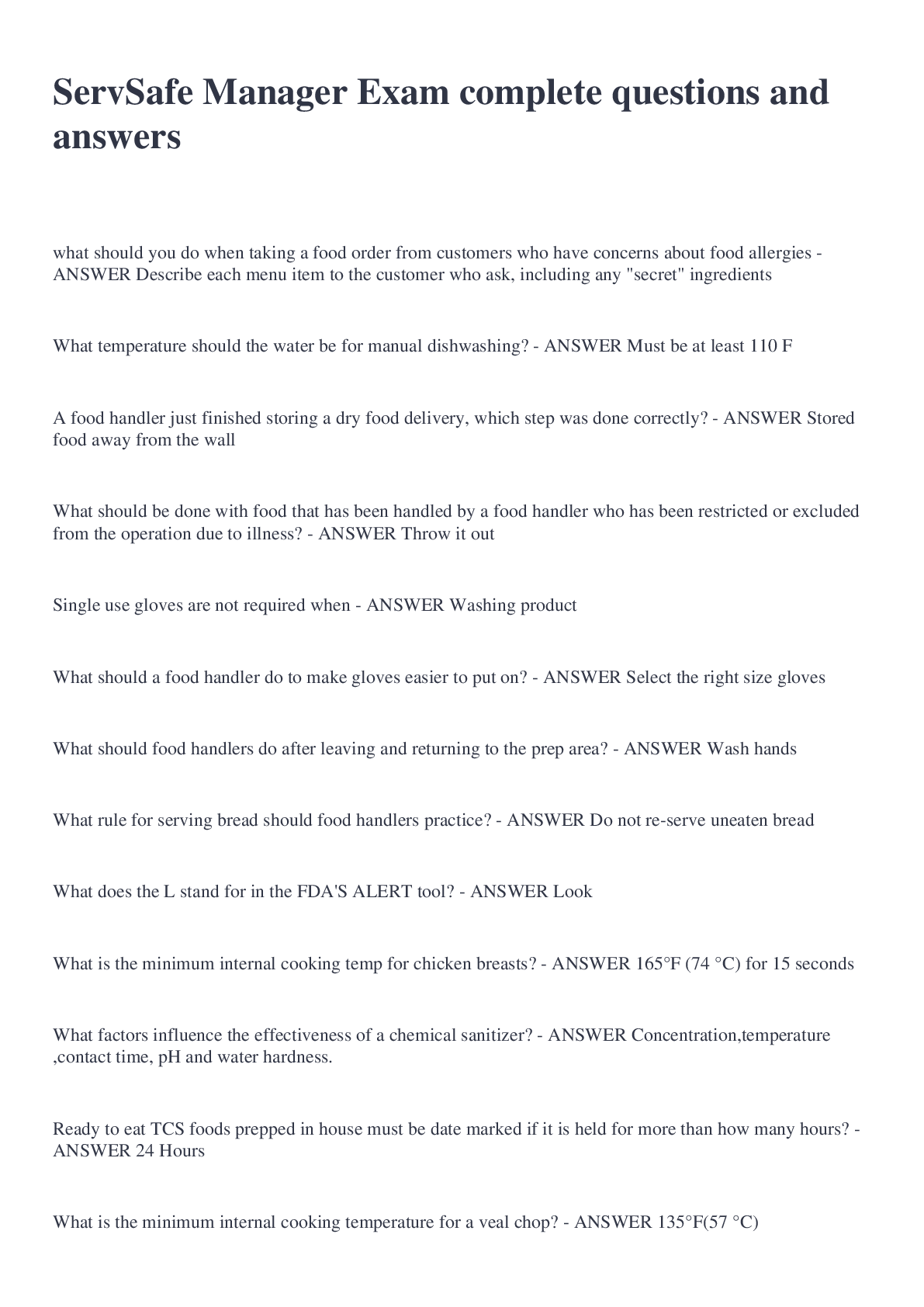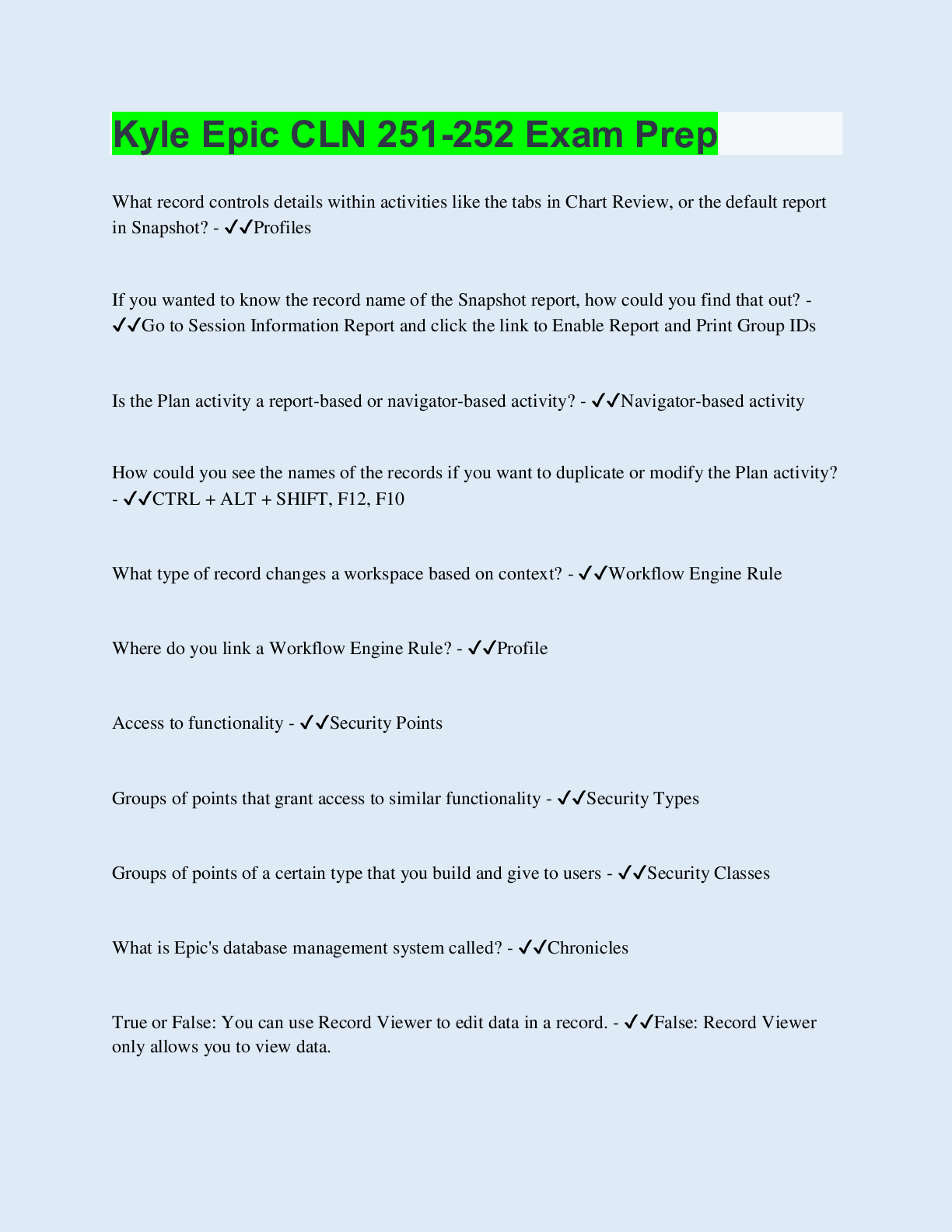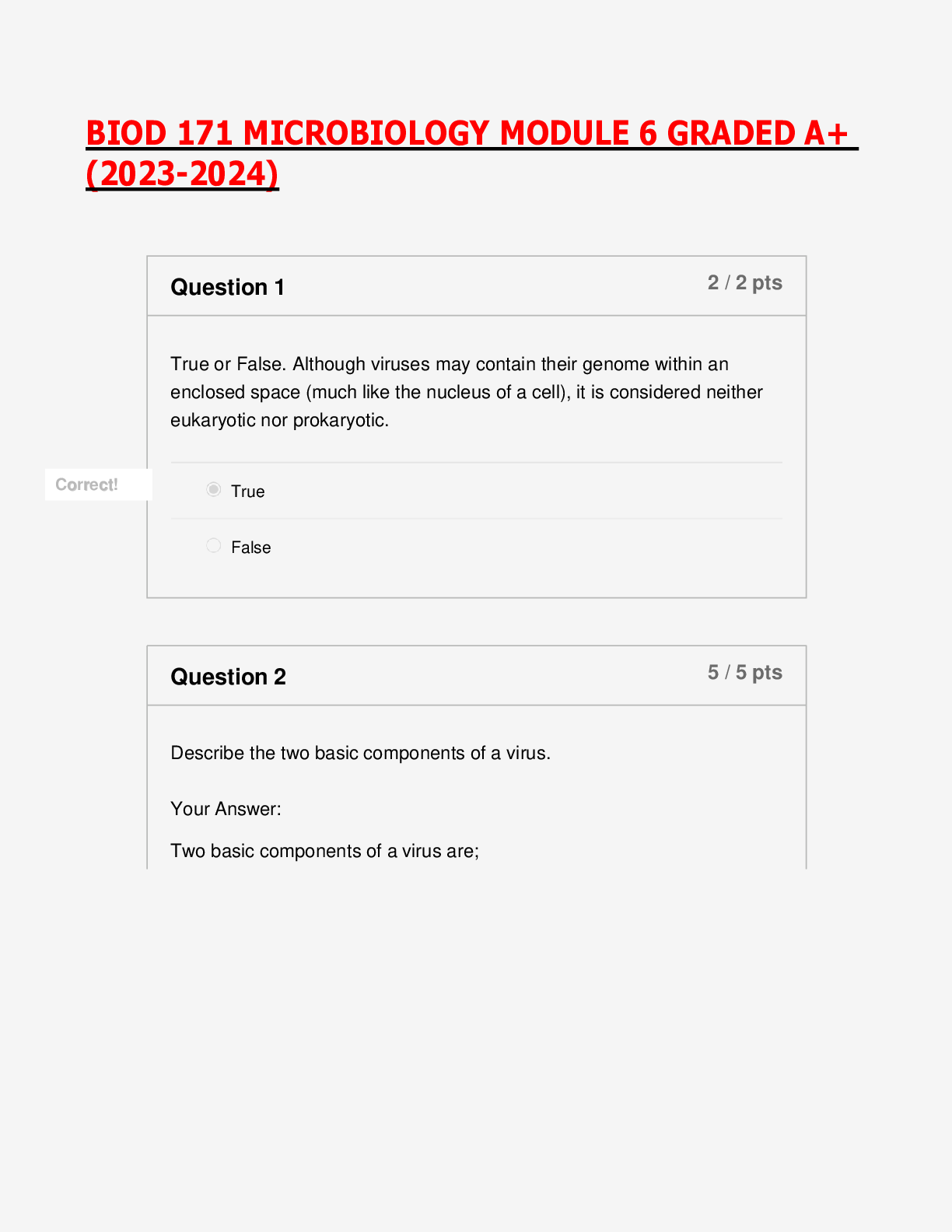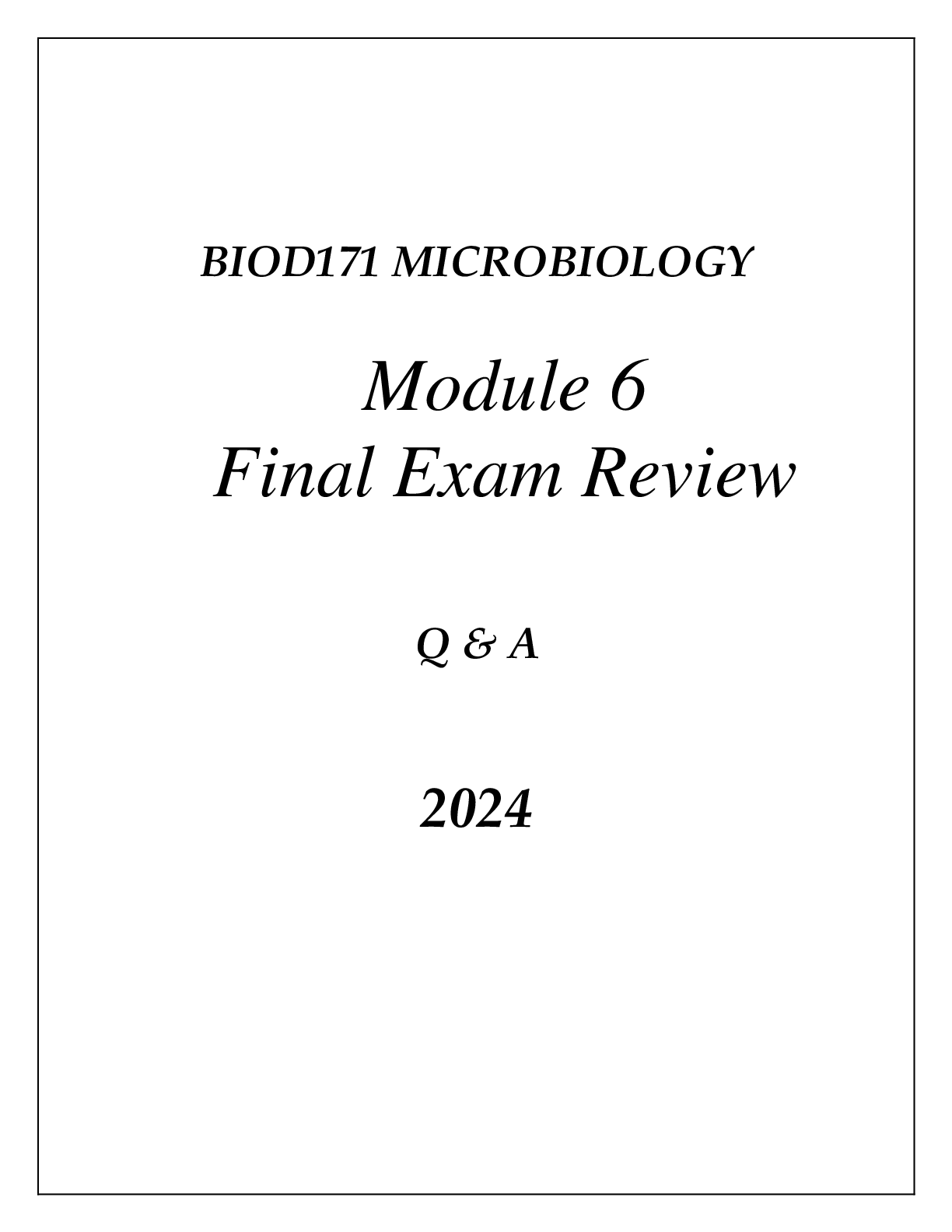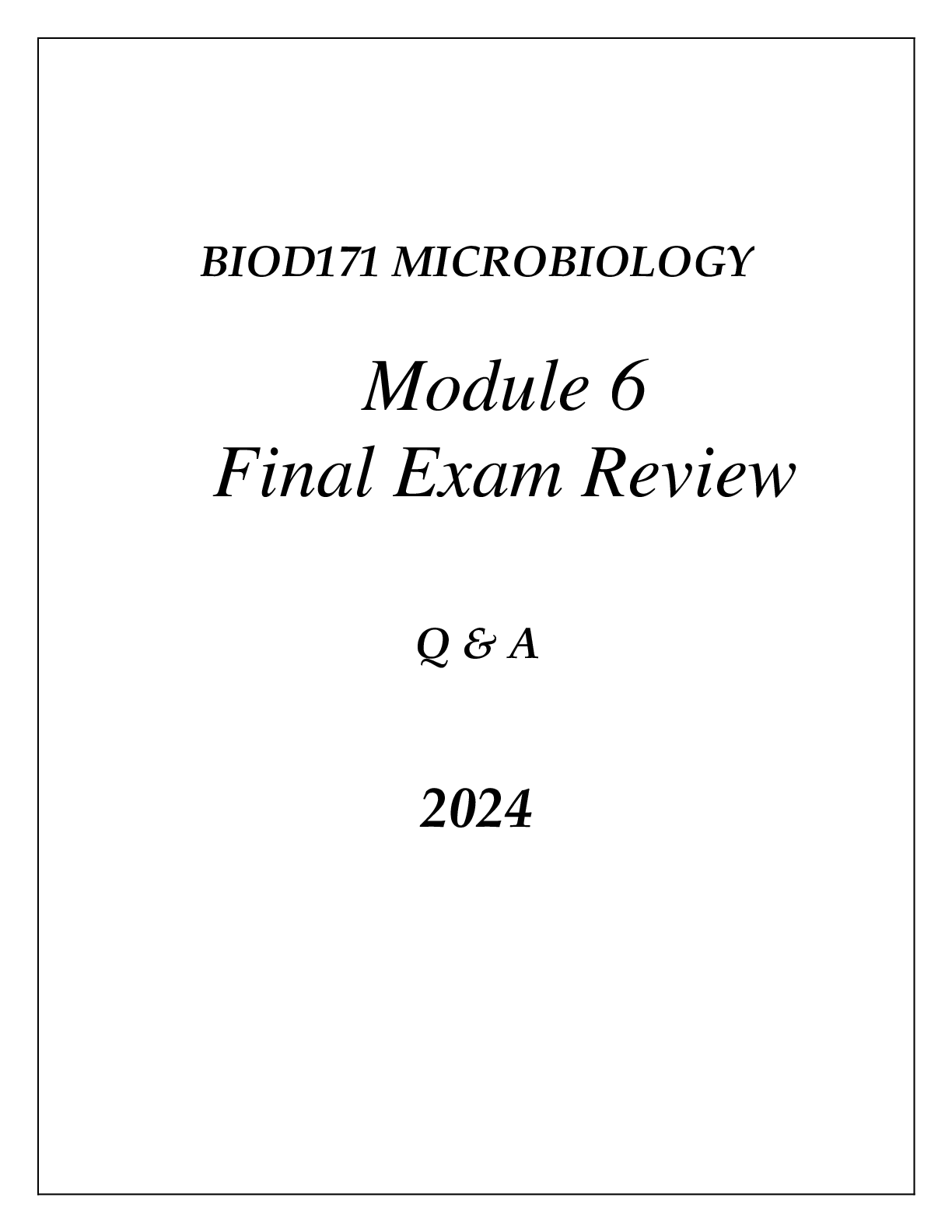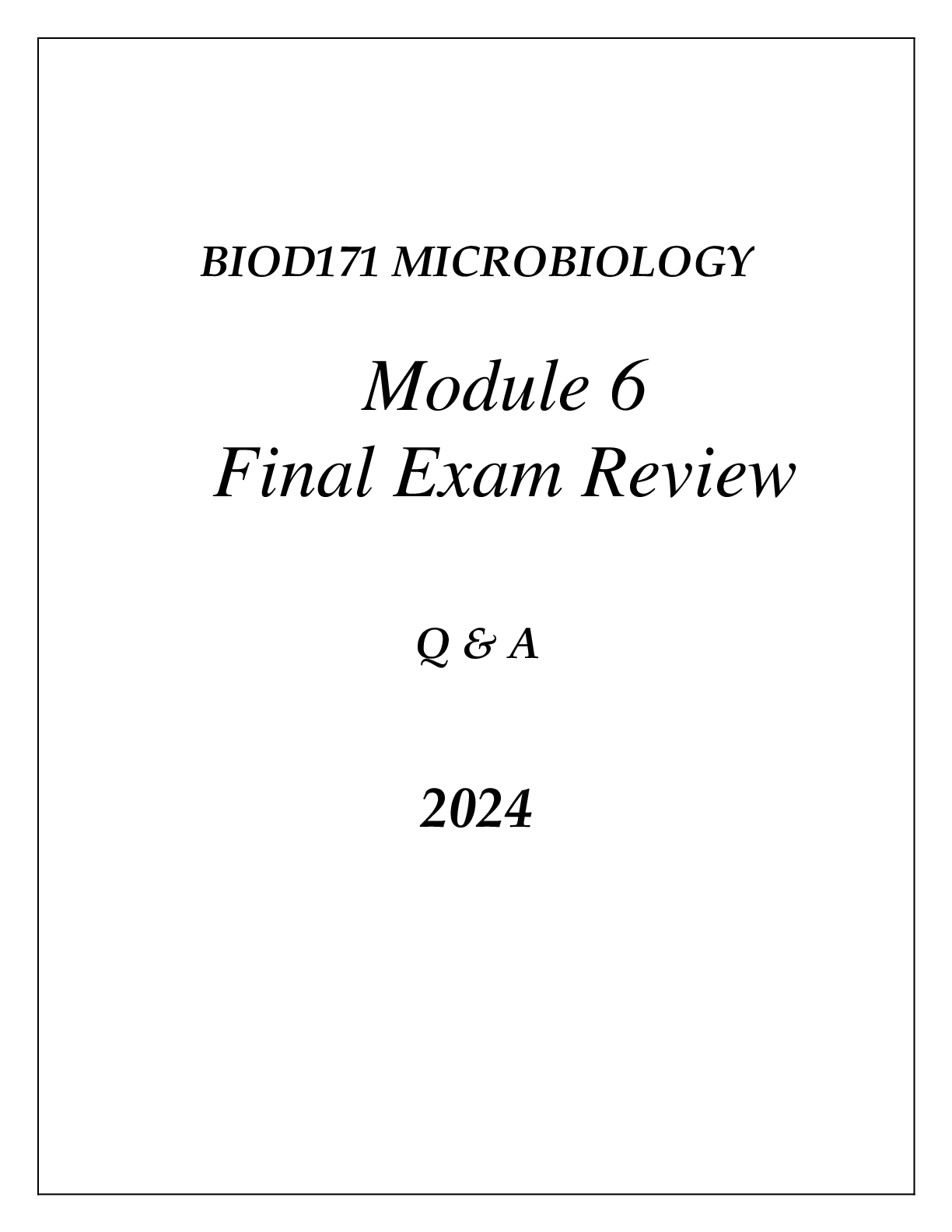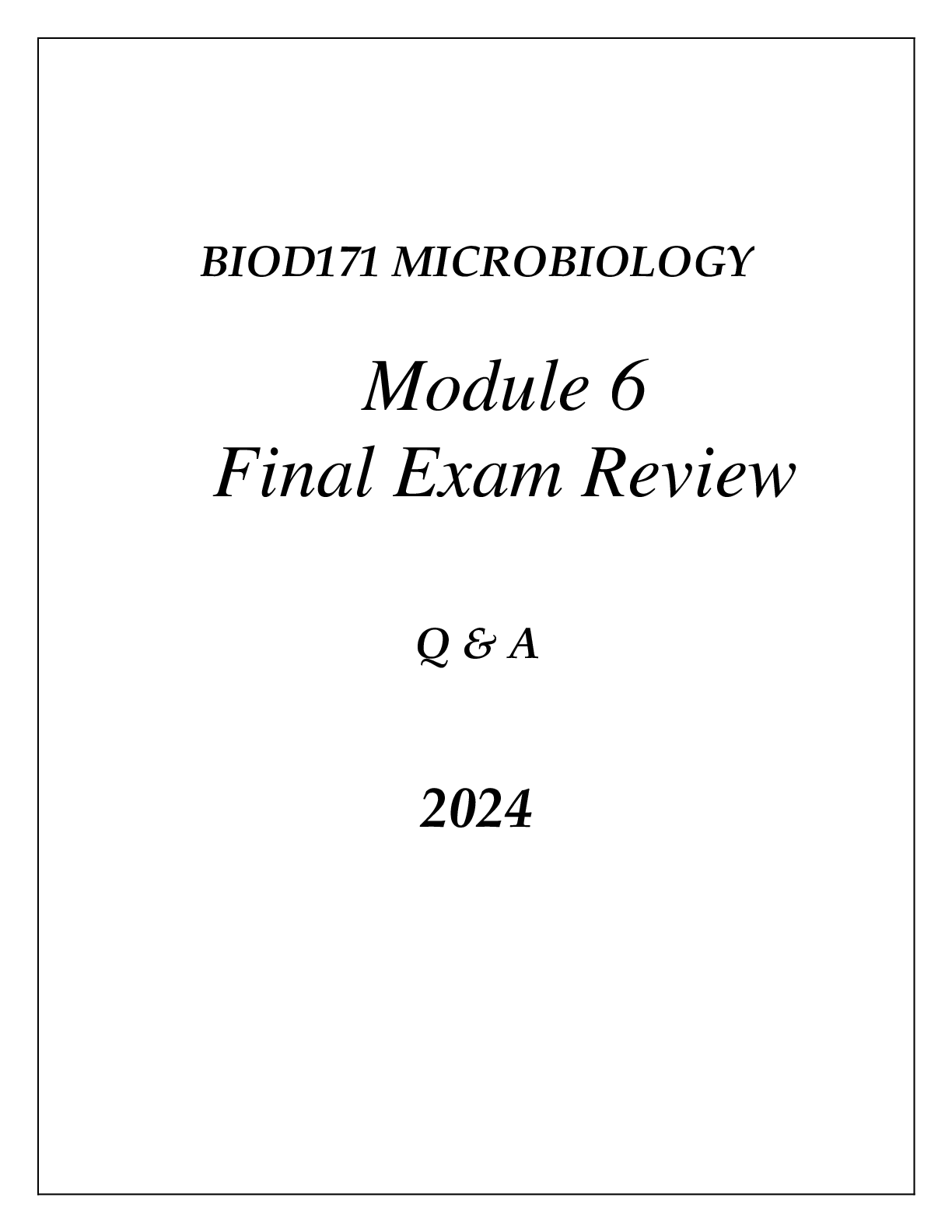Portage Learning: Microbiology Module 6 Exam 2022/2023
Document Content and Description Below
Can viruses be classified as either prokaryotic or eukaryotic microorganisms? - ANSWER Neither What is an obligate intracellular parasite? - ANSWER Viruses are considered obligate intracellular par... asites because they cannot replicate on their own. What is a viral capsid? - ANSWER The capsid is a membrane-like protective structure that contains the genetic material, similar to the nucleus of a eukaryotic cell. What is the viral envelope, and what does the presence (or absence) of it tell you about the type of virus? - ANSWER The envelope surrounds the viral capsid, is derived from the host cell membrane and serves as an additional barrier to the external environment. What type of microscope would be used to study the shape of a viral capsid? - ANSWER An electron microscope How does the viral envelope both aid in cell entry as well as hide it from being detected by the immune system? - ANSWER The viral envelope contains the necessary proteins required for interaction with host cells. As the envelope is derived from the host cell membrane, this camouflages the virus and lowers the likelihood of immune detection by making it appear similar to the normal biological host cell. What must happen before viral replication of its genome can occur? - ANSWER For all viruses, the genome is replicated following attachment and entry, never before. Describe the basic steps of the viral life cycle. - ANSWER 1. Attachment: Viral receptors bind to host proteins on the surface of the cell. 2. Entry: The virus fuses with the host membrane and enters the cell 3. Uncoating: (where applicable) the viral capsid disassembles 4. Replication: The viral genome provides the 'blueprint' to make copies of itself 5. Exit: New viruses are produced and leave the cell 6. New infection: Newly produced viruses leave the host cell and go on to infect new cells. The process outlined above now restarts. What is a bacteriophage? - ANSWER A virus that infects bacteria What structural aspects make bacteriophages distinct from viruses that infect either animals or plants? - ANSWER Bacteriophages possess an icosahedral capsid head group and a helical tail. Attached to the tail are fibrous extensions or 'legs' that aid in binding host cells. Which viral replicative process results in the destruction of the host cell? - ANSWER Lytic bacteriophages Describe the appearance of a bacterial culture infected with virus at the time of infection versus later once viral replication is occurring at a high rate. - ANSWER It goes from cloudy to clear To what family of viruses does rubella come from and how is it transmitted? - ANSWER Togaviridae, it is transmitted through airborne particles What is the common name for rubeola, and is it a DNA or RNA virus? - ANSWER Measles are an RNA virus What disease state emerges as a viral reactivation of a prior infection with the varicella virus? - ANSWER Shingles What linear, double-stranded, enveloped DNA virus is the first virus (as of October 26, 1977) to be declared eradicated? - ANSWER Smallpox What are the two key glycoproteins found in the influenza virus? - ANSWER HA and N Describe the composition of HIV. [Show More]
Last updated: 2 years ago
Preview 1 out of 2 pages
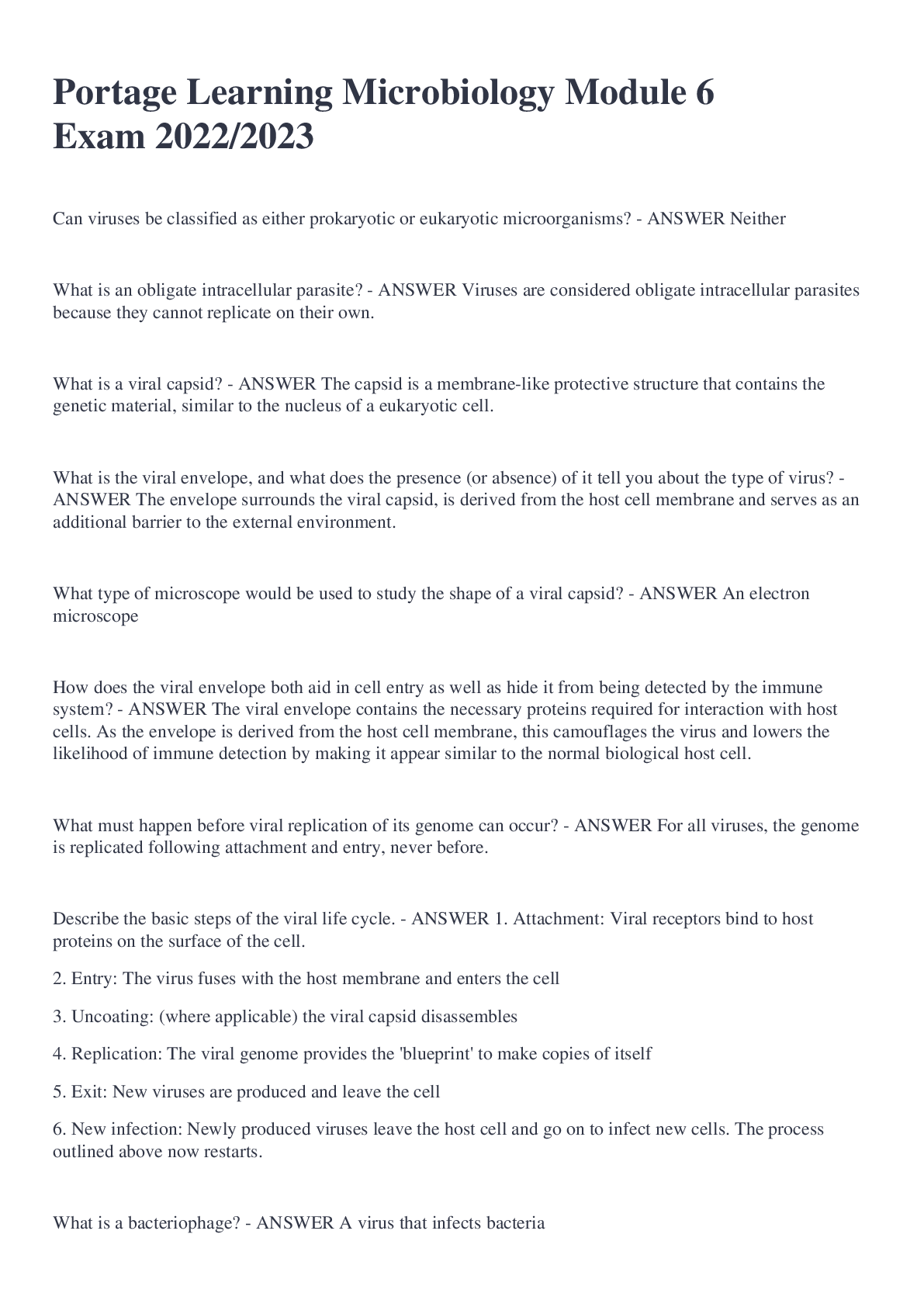
Buy this document to get the full access instantly
Instant Download Access after purchase
Buy NowInstant download
We Accept:

Reviews( 0 )
$8.00
Can't find what you want? Try our AI powered Search
Document information
Connected school, study & course
About the document
Uploaded On
Aug 27, 2022
Number of pages
2
Written in
Additional information
This document has been written for:
Uploaded
Aug 27, 2022
Downloads
0
Views
106


